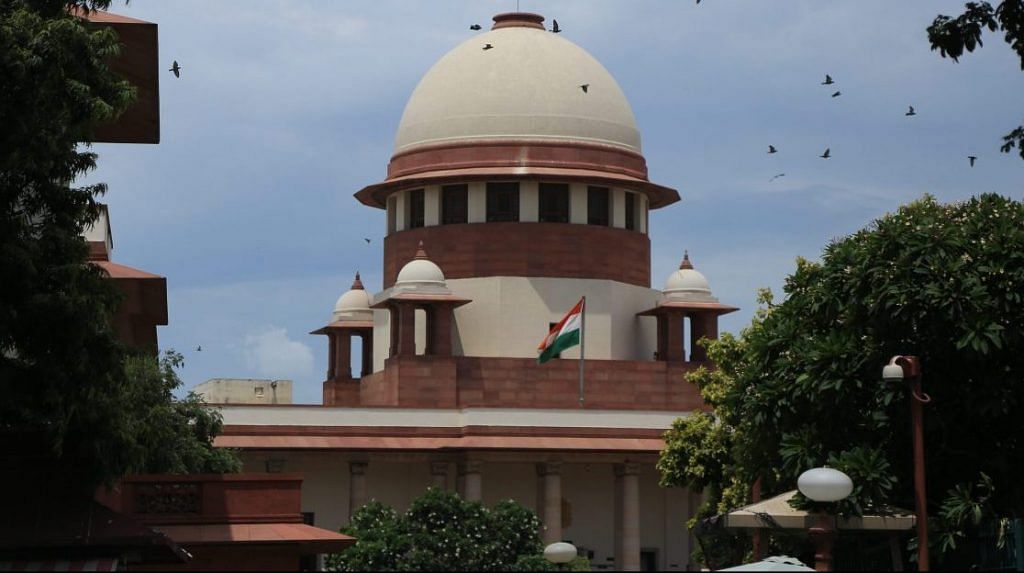New Delhi: The Supreme Court’s bid to minimise political influence in the appointment of director generals of police (DGPs) in states through a panel shortlisted by the Union Public Service Commission (UPSC) has hit another obstacle.
Now two senior IPS officers from Punjab have challenged the recent appointment of the state DGP — Dinkar Gupta — by the UPSC on “malafide grounds” in the top court.
Mohammad Mustafa, a 1985-batch officer, and Siddharth Chattopadhyaya, a 1986-batch officer, have also challenged the UPSC’s recommendation of three junior officers over them. The matter is listed for hearing Monday.
Gupta, a 1987-batch officer was appointed as Punjab DGP by the state government after his name was empaneled by the UPSC for the post. Gupta superseded five senior officers, including Mustafa and Chattopadhyaya.
“We have challenged it on malafide grounds,” Mustafa told ThePrint.
“I am more eligible for the post of DGP according to all the three criteria set by the Supreme Court — number of years in service, very good record and range of experience,” Mustafa said.
“The UPSC was deliberately kept in the dark while it was recommending the officers for the post due to vested interests…so we decided to take the matter to court,” he said.
Also read: UPSC has a plan for new 10% quota in civil services, and it’s anything but smooth
‘Completely arbitrary’
The political career of Mustafa’s wife was flagged at the meeting conducted by the commission to discuss the appointment, at which chief secretary Karan Avtar Singh and former DGP Suresh Arora were also present, said sources.
His wife, Razia Sultana, is a minister in Captain Amarinder Singh’s state cabinet.
Earlier, Mustafa had told ThePrint that the commission came up with no grounds while ignoring the senior officers for the post.
“It was completely arbitrary… How can this be allowed?” he had said.
Both Mustafa and Chattopadhyay have two years of service left before retirement.
The UPSC is not appointing any officer who has less than two years of service left as DGP, thereby superseding senior officers in states like Bihar, Haryana and Punjab where DGPs have recently been appointed.
Also read: Why UPSC is shortlisting IPS officers to become state DGPs
Punjab police tussle
Last year, a full-blown war broke out within the Punjab police when Chattopadhyaya, then DGP (human resource development), told the Punjab and Haryana high court that he was probing the role of Gupta, along with his predecessor, Arora in a drug case, and was therefore being targeted by them.
A month later, he was transferred as DGP Punjab state power Corporation limited (PSPCL).
Some opposition parties have, therefore, questioned the UPSC about why it didn’t take cognisance of these serious allegations against Gupta before empaneling him for the top post.
The UPSC, which was asked by the Supreme Court in January, to empanel officers for the post of DGP in states, has been under the scanner ever since the order.
Earlier this month, former DGP of Uttar Pradesh, Prakash Singh, moved the court challenging UPSC’s implementation of the court orders.
According to Singh, the court’s directive that DGPs should have a fixed tenure of two years has led the UPSC to unfairly exclude senior IPS officers close to retirement from the promotion exercise.
